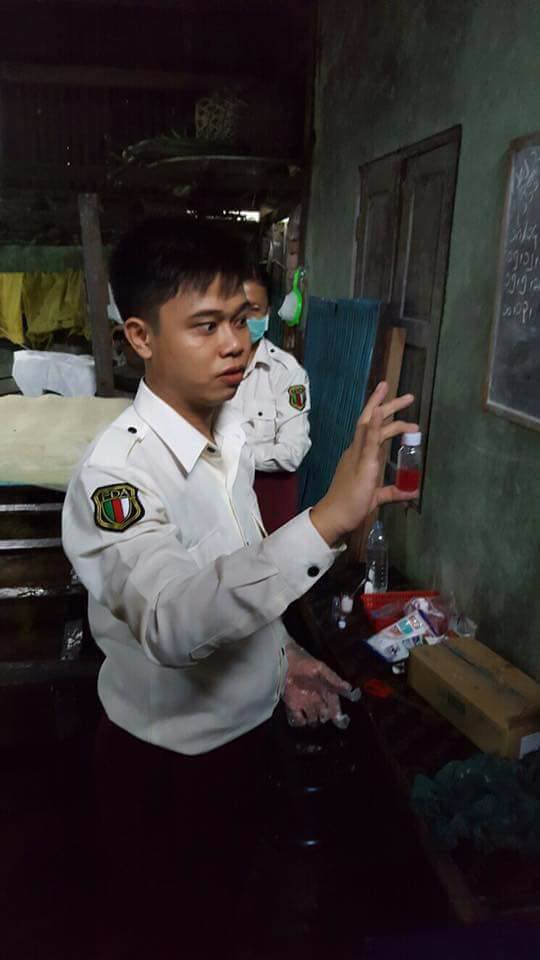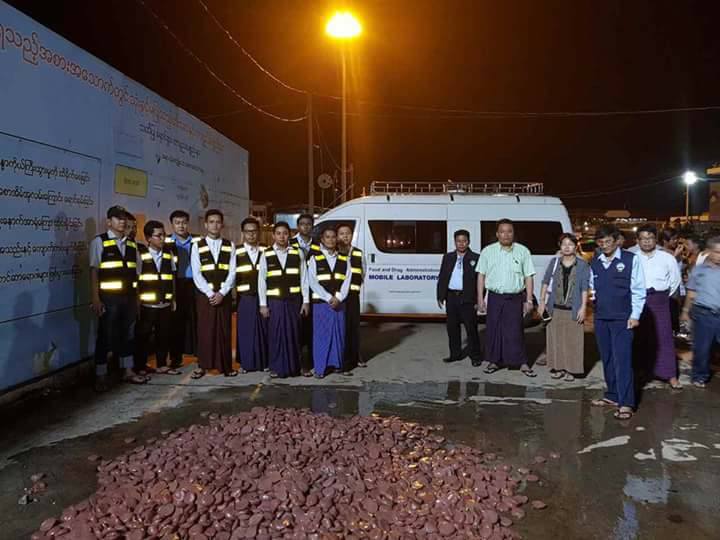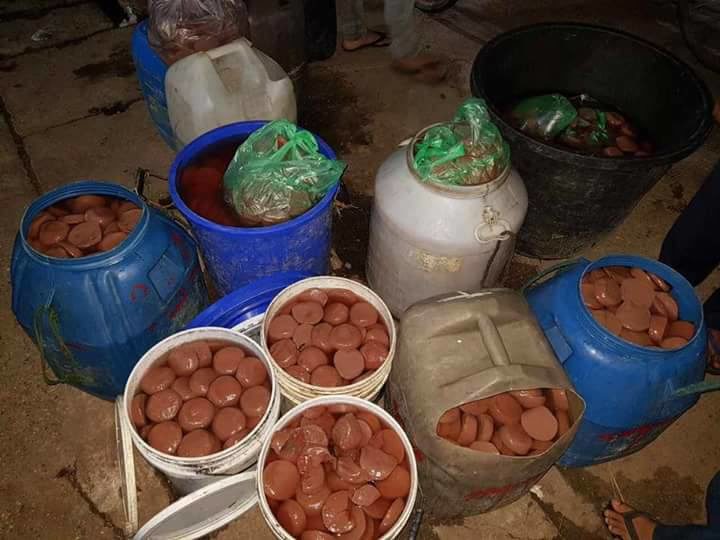In Myanmar’s ongoing war against the use of embalming fluid in food production, the Yangon Food and Drug Administration (FDA) caught five vendors in Hmawbi and Hlaing Townships who were selling contaminated “bean blood” – a plant based substitute for edible pig blood.
In nighttime raids conducted on July 12, the FDA tested foods sold at Hmawbi Market and Thiri Mingala Market. They discovered identified bean blood at five stalls that contained formaldehyde – a chemical used to prevent decomposition in dead bodies.

The group publicly destroyed 7,000 units of contaminated bean blood using a bulldozer. The FDA is now working on tracking down the food producers responsible for the contamination.
FDA officials also tested 13 tofu samples during the raid, but none were found to contain formaldehyde.
In July 2016, the FDA penalized noodle producers who used formaldehyde as a preservative by adding their names to a public shaming list, and in April 2017, it declared that the use of formaldehyde had been all but eliminated from Yangon markets.
However, less than a month later, the chemical was discovered in several food items in Latha Township’s Theingyi Market.
Following the discovery, the FDA pledged to file legal charges against food producers that used formaldehyde.

Formaldehyde, also known as formalin, is widely used to preserve human bodies. It is sometimes misused as a preservative in tofu, noodles, seafood, milk, and dairy products.
The long-term or excessive consumption of formaldehyde can cause severe stomachache, nausea, fainting, renal failure, and death. Inhaling formaldehyde in its gaseous form can result in lung cancer.




